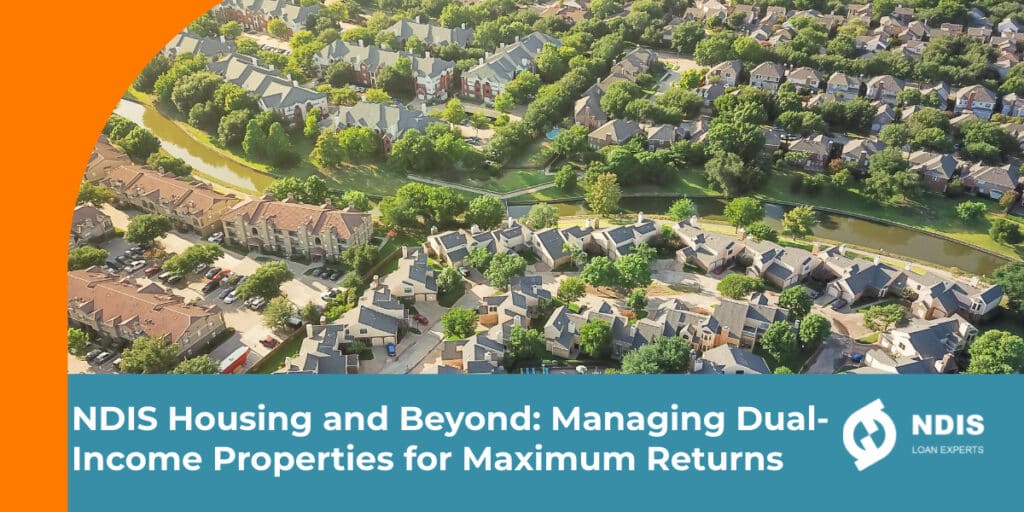Managing multi-income properties, such as some Specialist Disability Accommodation properties offered through the National Disability Insurance Scheme (NDIS) housing program, can be complex yet rewarding.
To ensure you’re getting the most from your NDIS property investment, it’s essential to implement effective management practices.
What is a dual-income property in Australia?
Dual-income properties refer to investment properties that generate more than one rental income. In the mind of an investor, receiving two rents may be better than one, however, depending on the property type, there could potentially be additional costs to building or buying the property (including developing the land).
The four predominant dual-income properties available on the Australian property market:
- Specialist Disability Accommodation.
- A rooming or boarding house.
- Duplexes.
- A dual-income property on one title (such as building a granny flat adjacent to a main house).
Does dual rental income equate to positive cash flow?
Just because you’re receiving two rental incomes doesn’t necessarily mean that the one property will be cash flow positive. Whether you have a positive cash flow or negative cash flow depends on many factors, including the costs associated with the property (for example, body corporate fees, property management fees, council rates and interest charges on finance) as well as the effectiveness of any tax benefits you may have access to and your loan-to-value (LVR) ratio and capital invested.
Our tips for managing multi-income SDA properties
Here are some tips to help you manage multi-income SDA properties successfully.
Partner with NDIS Providers
Collaborate with NDIS service providers to find suitable tenants for your properties. These providers can assist in identifying eligible tenants, ensuring their needs are met, and offering ongoing support throughout their tenancy.
Engage a professional SDA property management team
One of the requirements for owning an SDA investment property is that it’s managed through a specialist disability accommodation property management team. Many SDA providers also offer property management as part of their services. This will ensure that all inspection and maintenance works are carried out in compliance with the SDA regulations, as well as reduce the administrative burden of managing multi-income properties and separate tenancy agreements.
Financial recordkeeping
Keep detailed financial records to monitor the property’s performance and track income and expenses. This will help you identify areas for improvement and ensure you are maximising your returns.
Long-term investment perspective
Multi-income properties, especially SDA properties, may require a long-term investment perspective. Understanding the potential challenges and benefits of this specific niche market may help allow you plan for the future and set realistic rental yield expectations.

The benefits of multi-income properties for investors
Owning a dual-income property may provide several benefits to a property investor. With NDIS property investment, one can own a specialist disability accommodation property that derives more than two incomes. Some of the SDA design categories allow up to four NDIS participants to reside in the premises.
The tenancy structure of SDA is such that each NDIS participant holds a separate tenancy agreement, given that they all have individual NDIS plans for funding. What this mean is that you may have several rental incomes being generated from the property. If one tenancy agreement ends, it does not affect or impact the remaining tenants who will continue paying rent.
Having more than one rental income provides obvious potential benefits to the cash flow of an investor, however the overall viability of the SDA investment property still relies on meeting NDIS demand, being built in the right location and being built to a level that is attractive to prospective NDIS tenants.
To understand more about how to finance your opportunity to invest in a multi-income investment property supported by government-backed returns, talk to NDIS Loan Experts!


